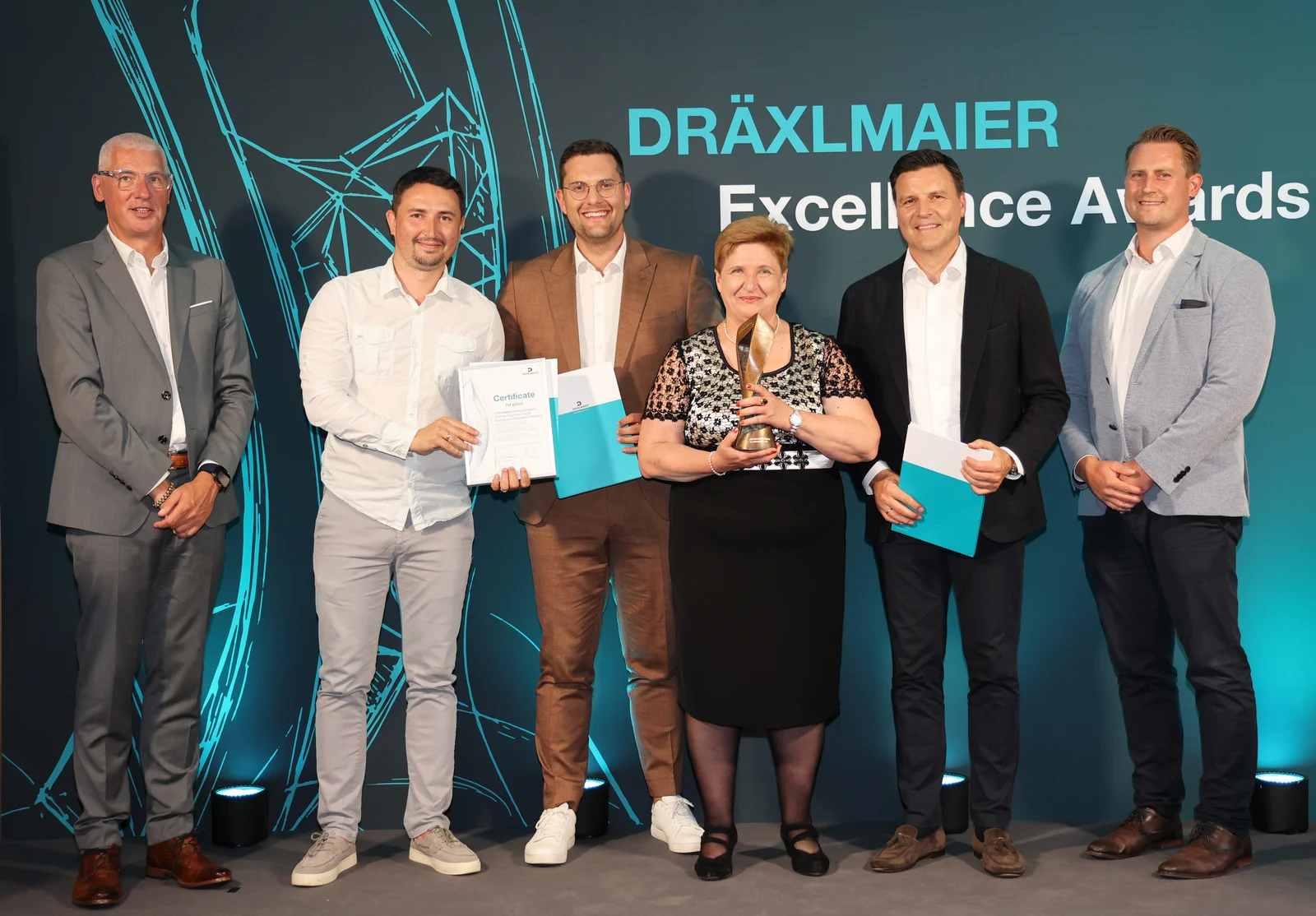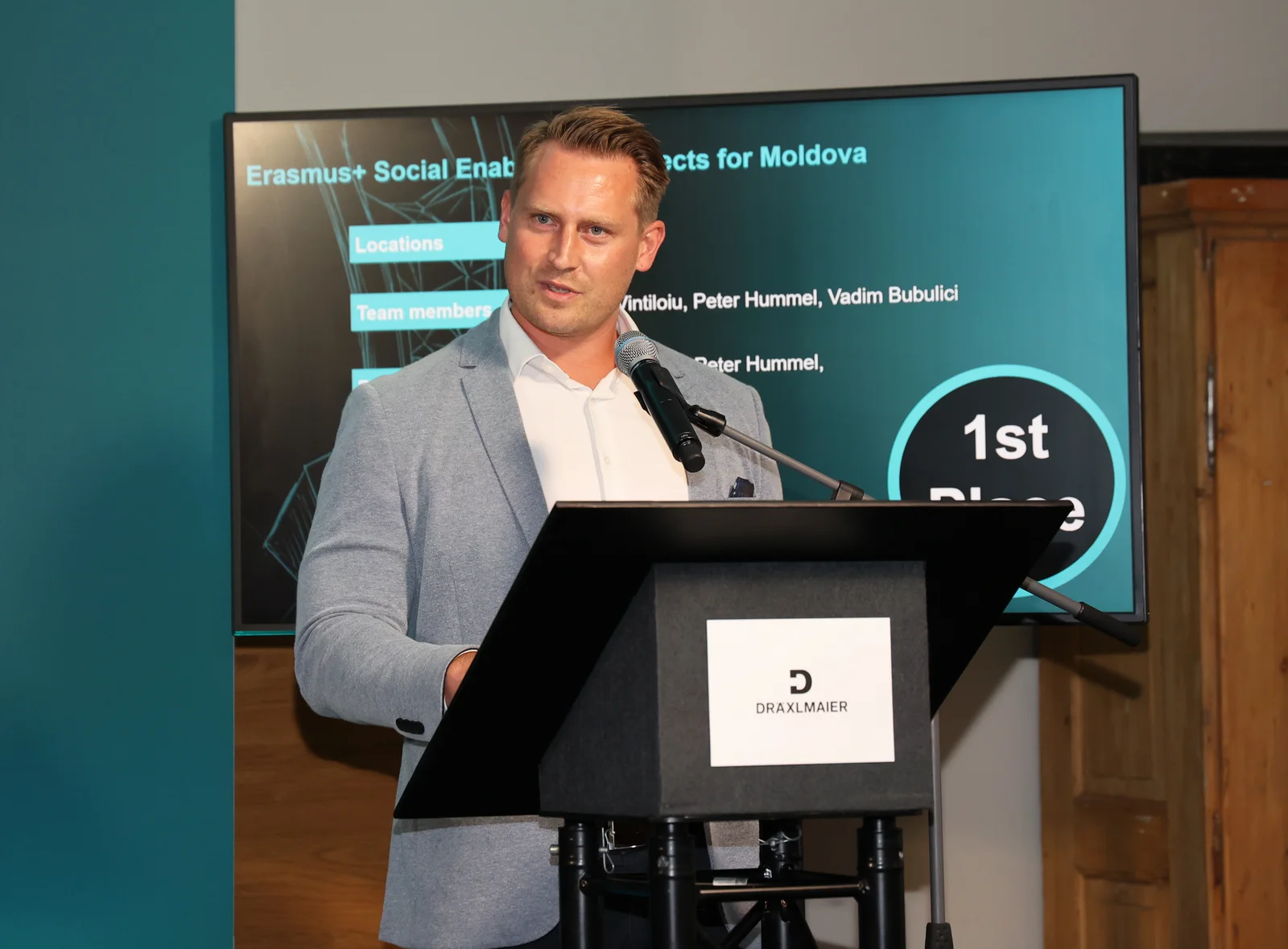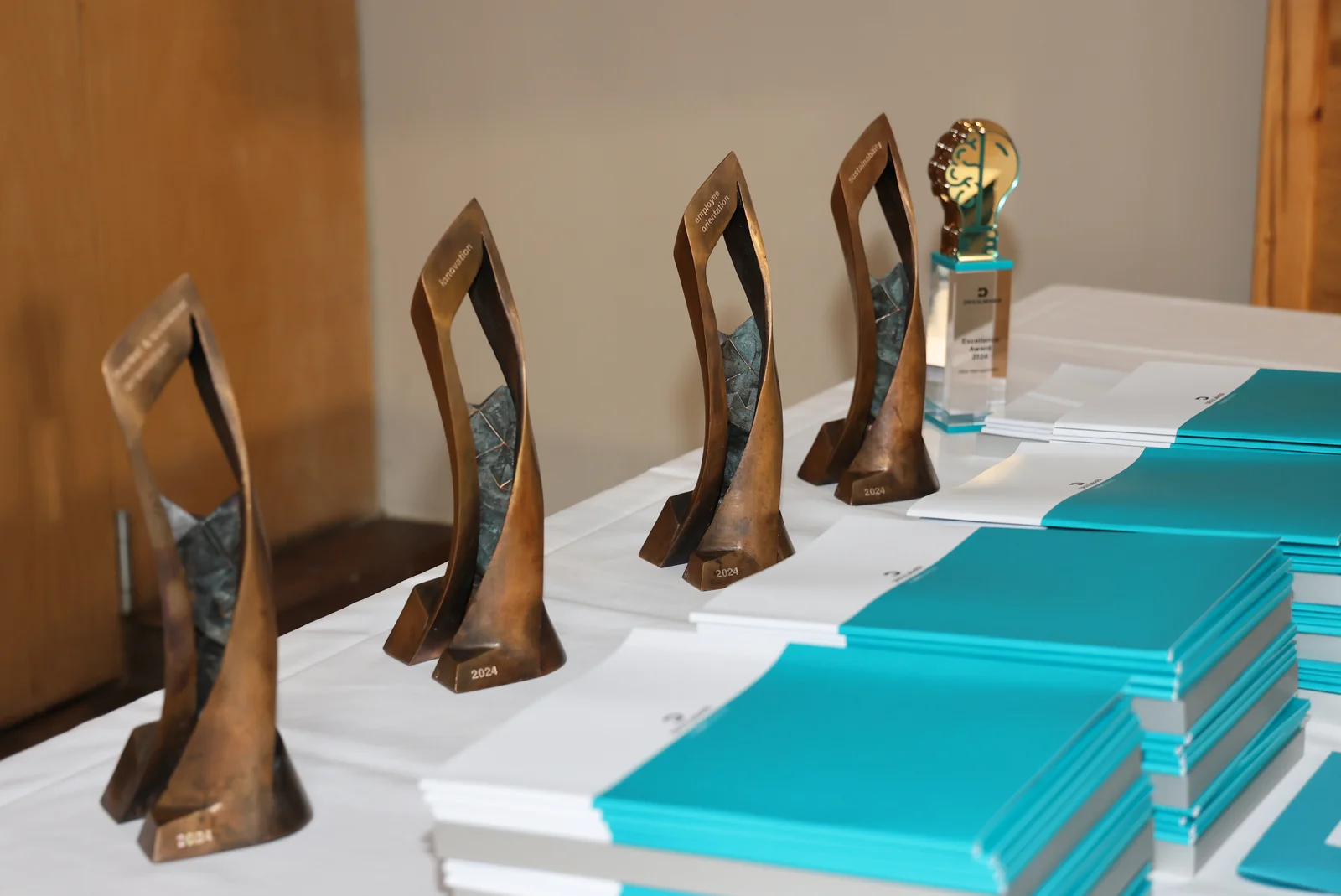
The Excellence Award winners in the Sustainability category
The “Erasmus+ Social Enablement Projects for Moldova” project from Balti, Republic of Moldova, won in the sustainability category and makes a valuable contribution to our social responsibility. Dr. Ioana Vintiloiu, employee of the Economics & Politics department, Peter Hummel, Head of Economics & Politics, and Vadim Bubulici, Head of Professional Education in the Republic of Moldova, told us more about the project and the collaboration.
What are the two projects DIGTRANS and NEEDEDU about?
DIGITRANS (Digital Transformation of the Education Process in Higher Education Institutions in Ukraine and Moldova for Sustainable Engagement with Enterprises) is a three-year project funded under the ERASMUS+ KA2 (Key Action 2) program Capacity Building in Higher Education. The goal is to strengthen the higher education system in the Republic of Moldova through building blocks of digital transformation.
NEEDEDU4.0 (Improving Mechanical Engineering Education in Moldova for Industry 4.0) is also a three-year project. The goal is to accelerate the transition of higher education institutions in the Republic of Moldova to Education 4.0 with the hopes of improving the employability of graduates. One specific goal of the project is the introduction of a new master’s degree in mechanical engineering.
DRÄXLMAIER is participating in both projects as an exclusive industry partner. We are directly involved in the revision of existing curricula in the field of engineering and offer students the opportunity to gain practical experience at an early stage through internships and specialist courses in the company. In addition to DRÄXLMAIER, universities and organizations from all over Europe are participating, including three renowned educational institutions from the Republic of Moldova. Both projects are supported and funded by the European Commission via Erasmus+.

Why is it important to link business and education at an early stage?
As an industrial company, we are in urgent need of the skills and abilities of future specialists—and the university equips them with the knowledge and skills they need. By collaborating with key educational institutions, we can provide students with early insights into economic contexts that they would otherwise only gain through practical work experience rather than at university. We strive to strengthen the long-term development of skills on the industrial and technical side, as taught at universities, as well as on the economic and entrepreneurial side. The market, knowledge, and tools are constantly changing. We want to support this dynamic process in long-term projects such as DIGITRANS or NEEDEDU. However, successful development is only possible if business and education pull together.
Which partner universities are taking part in the two Erasmus+ projects and how did the collaboration with DRÄXLMAIER come about?
Since the first DRÄXLMAIER site opened in the Republic of Moldova, we have maintained close relationships with several renowned universities in the country, including the Technical University of Moldova in Chişinău, the Alecu-Russo State University in Bãlţi, and the Bogdan Petriceicu Hasdeu State University in Cahul. Back in 2011, we worked with the Alecu-Russo State University in Bãlţi and Landshut University of Applied Sciences on our first joint project “Automotive Academy,” but with the launch of DIGITRANS and NEEDEDU in 2021, we were able to take our collaboration to a new level. The current Erasmus+ projects are at an extremely high professional level. We are also the first industrial company to be a fully-fledged project partner compared to similar European education projects. We are proud to be able to play such a key role vis-à-vis the European Union.

What is the state of the educational infrastructure in the Republic of Moldova and why do companies like DRÄXLMAIER have a responsibility to continuously improve it?
Since the Republic of Moldova declared independence in 1992, its education system has been going through a difficult phase with many organizational and structural challenges. For this reason, it is necessary to revise the education system and adapt the existing curricula to current requirements. The supply of teaching materials is also often difficult due to a lack of funding. This need has also been recognized by the European Union as a partner of the Republic of Moldova and the Erasmus+ programs have been opened for Moldova. Companies like DRÄXLMAIER, which have built up stable organizational structures over decades, now have the opportunity to accelerate the modernization of teaching structures and to gradually raise the level of education at universities nationwide.
What are the advantages of international collaboration for local companies like DRÄXLMAIER?
We are convinced that every single participant—whether professor, business representative or student—will benefit individually and collectively from our collaboration. We want to bring companies and universities together, pool their knowledge, develop it further together, and enshrine it in the education system in the long term. Excellent specialists of tomorrow for the challenges of the day after tomorrow create the basis for long-term success for everyone.